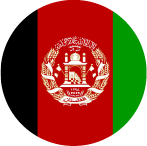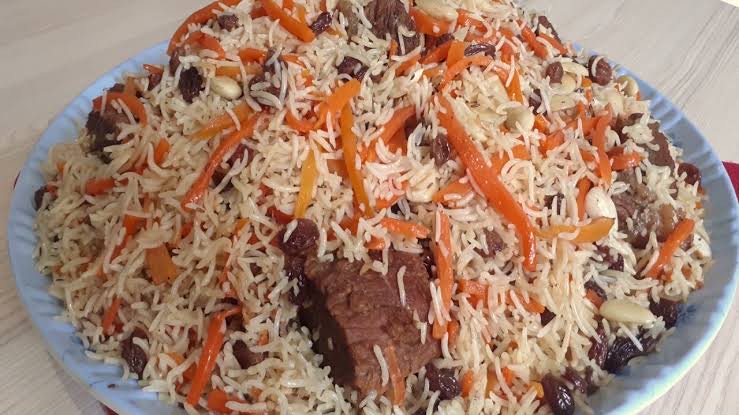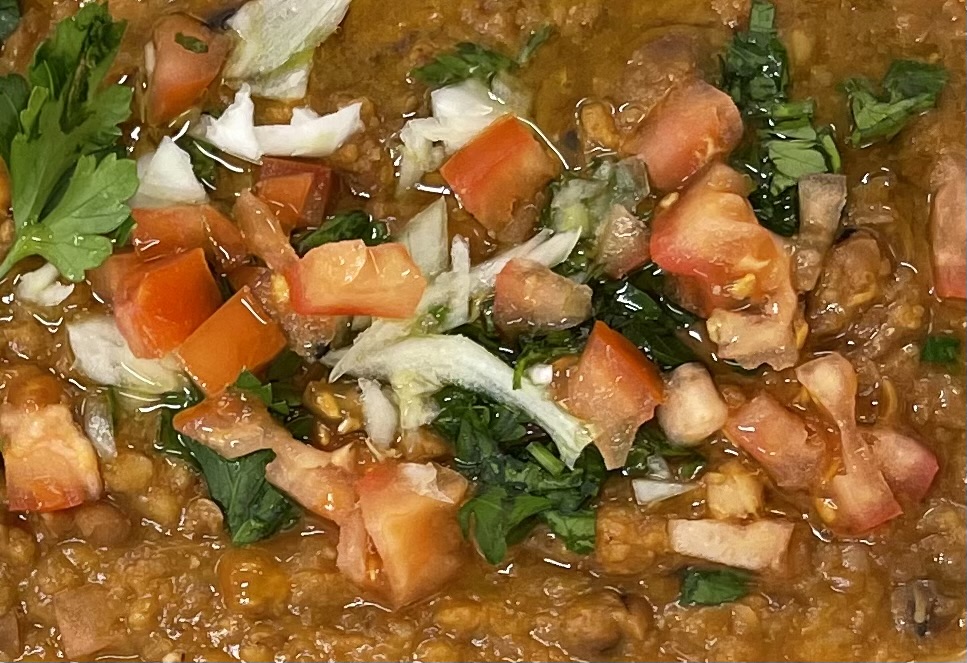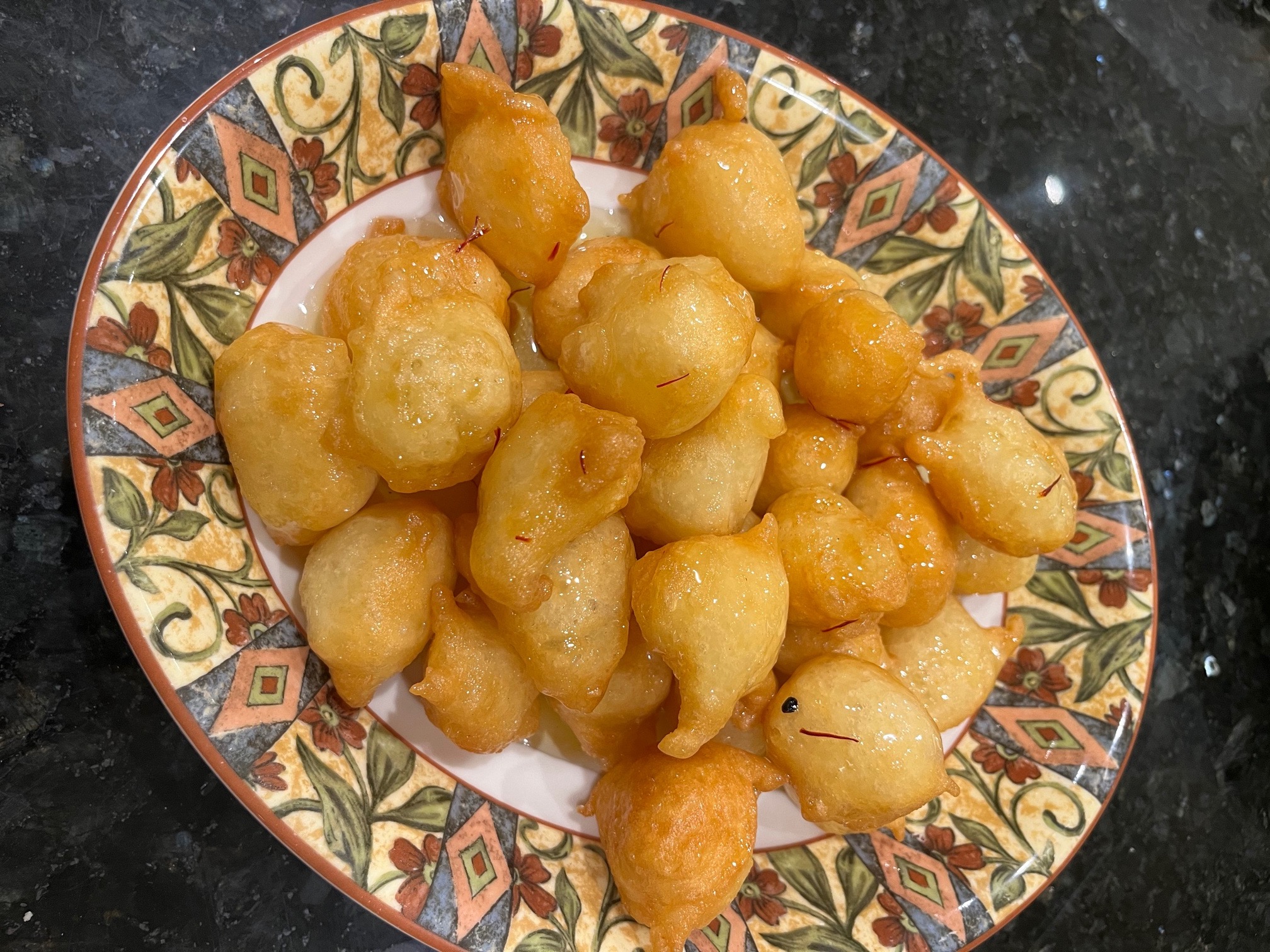Farukh’s Beef Palau
 Afghanistan
Afghanistan 
Afghanistan is an agricultural country and produces many agricultural products, one of which is rice. There are thirty four provinces in Afghanistan and the rice produced in Baghlani province in northern Afghanistan is particularly famous. I’m told Baghlani rice is a kind of basmati.
My mother died when I was only 13 but I remember that when we went shopping together for food, she chose Baghlani rice because it has a particularly good taste and smell. She taught me that for best results you should invest in good rice, and Baghlani rice is full of flavour and perfect for cooking Palau. It has the longest grains, is pearly white in colour and is very clean with a beautiful aroma. It is also fluffy and non-sticky when you cook it and the grains separate well which is what you need for Palau.
Rice is a very important part of Afghan cooking and a significant part of our diet. Both rich and poor cook it, and it is easy to prepare. Palau is possibly the most popular dish in Afghanistan and on special occasions such as weddings, Eids, New Year, and parties, we have Palau on our table. It combines well with different stews, soups, and other traditional foods and is one of the main dishes in Ramadan as well.
The way you prepare Palau varies according to your taste: it can be made with mutton/lamb, beef, carrots or slices of orange, pistachios and almonds, raisins or a mix of all these things.
I learned how to cook Palau from my mother. Afghans are very hospitable people and so was my mother. Whenever we had guests over, she cooked delicious food – one of which was Palau. When she cooked Palau, I helped her with slicing carrots and washing the rice and raisins. I have many memories of cooking and occasions where we shared this delicious food with family and friends. I especially remember my mother and aunts cooking for large family parties and gatherings while my cousins and I helped prepare the fruits, salads, plates and utensils, and other things needed for the party. That is why I love it!
In Afghanistan, people wash their hands before and after meals and eat with their hands. And for washing hands, it is common for the two youngest members of the family to wash everyone else’s hands, using a large jug and a basin. One of them holds a portable basin and soap and the other one a pitcher and handkerchiefs and they go around each member of the family seated in the dining room, one by one, and pour water for them to wash their hands.
Tables and chairs are not common in Afghanistan. All the rooms are fully carpeted and there are mattresses on the floor for everyone to sit on. So, at mealtimes, we spread a tablecloth that is specifically for eating meals and seat ourselves around it. Once everyone has washed their hands, we gather around the tablecloth, and usually, two people share one plate. If it is just a family gathering, men and women eat together; but when it’s not just family, the men’s room is separate from the women’s room and they eat separately.
Traditionally, tablecloths and napkins/handkerchiefs are sewn by women with beautiful designs, but nowadays the ready-made tablecloths from the market are more popular.
Like I said, Palau brings back very special memories and I know I will continue cooking it here in Australia and remembering my mother and the first 24 years of my life in Afghanistan. We have just had our first iftar evening in Sydney, inviting new friends, Muslim and non-Muslim, to break our fast with us and it was really special for my sisters and me to cook some of the foods our family loved most in Afghanistan. I hope you will enjoy my mum’s Palau recipe too.
Farukh Tahery
April 2022
Share this story

First, wash the rice and leave it to soak for an hour. After 40 minutes, place the raisins in cold water for 15 to 20 minutes to soften.
Chop the onion and fry it in 1/2 cup of oil until golden. Then add the turmeric and meat to the hot onion and fry it until it darkens in colour and the meat juices collect. Now add 5 cups of boiling water then close the lid and let the meat cook for 45 minutes at medium temperature. After 30 minutes open the pot before the meat is fully cooked, add one teaspoon of salt then close the top lid, and let it boil for 15 minutes.
Meanwhile, peel the carrot and then grate it. Pour half a cup of oil into the pot, put on heat, add carrots and fry (sauté) for 5 minutes then turn off the heat. Stir the raisins through the carrots.
Now put 7 cups of water in another pan and heat to boil. Take the soaked rice and add it to the boiling water, keeping it on high heat for 10 minutes to boil until it becomes soft, then drain the rice out of the water.
Using a large pot (which can be the same one you boiled the rice in), use one tablespoon of oil to grease the bottom of the pot. Spoon enough rice back into the pot to cover the bottom of the pot, then add a layer of the meat, then add a second layer of rice to cover it. Now add a layer of carrots and raisins then cover them with the remaining rice and sprinkle the caraway seeds. Then mix one teaspoon of salt with 1 cup of water and pour this over the rice.
If there are any meat juices or broth from cooking the meat, pour these juices over the rice too. Put the lid on the pot and set on the lowest heat possible to brew for 15 – 20 minutes.
Now your Palau is ready to eat. We usually serve it with cooked vegetables, potato chips, and different salads which in the Afghan way has all the fresh ingredients chopped very small.




